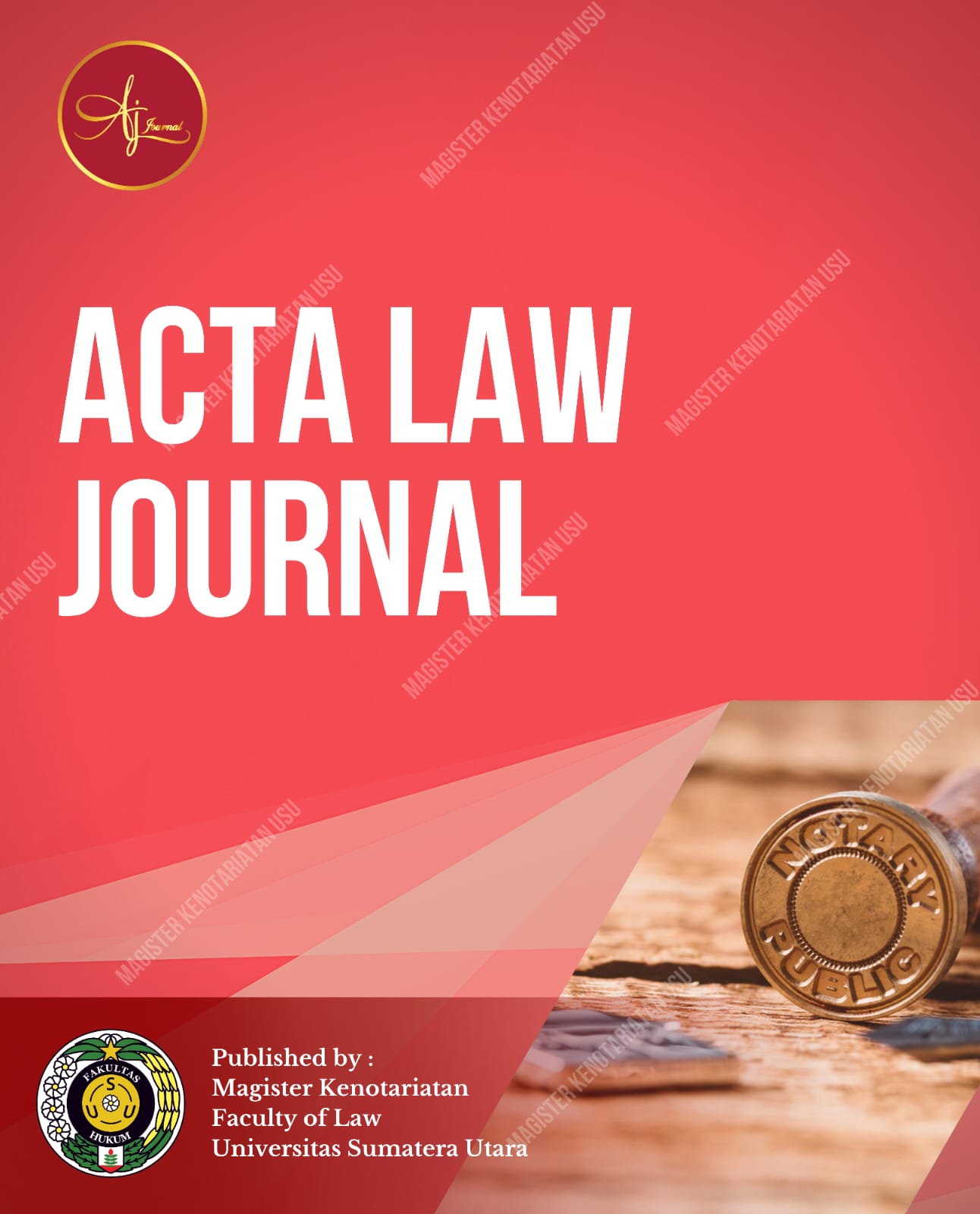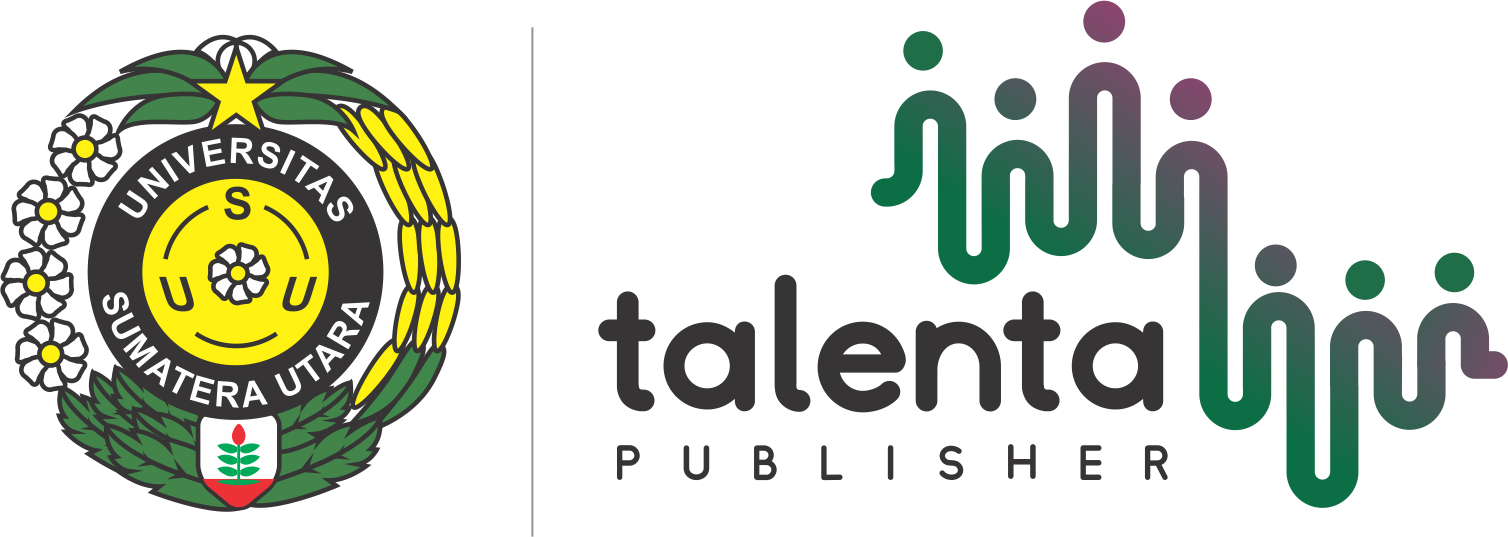Pemegang Pengalihan Atas Hak Tagih Tertulis (Cessie) Dalam Permohonan Penundaan Kewajiban Pembayaran Utang Berdasarkan Undang-Undang Nomor 37 Tahun 2004 Tentang Kepailitan dan PKPU (Analisa Putusan: No.16/Pdt.Sus–PKPU/2017/PN.Niaga/Jkt.Pst)
DOI:
https://doi.org/10.32734/alj.v2i1.15366Keywords:
PKPU, Debts, CessieAbstract
The transfer of receivables for written collection rights is called Cessie. The legal arrangements regarding cessie are regulated explicitly in Article 613 of the Civil Code. Generally, the granting of the right to collect is often in debt-receivable disputes. Transfer of rights from the old creditor (cedent) to the new creditor (cessionaris) over the debtor (cessus). Disputes over debts in the business world are commonly experienced by every legal subject including business entities. The problem of debts is a slick and complicated problem to find a solution to these conditions. The intensity of the need for funds in carrying out company operations can bring two things, namely profit and loss. (However, in practice, the transfer of receivables for written collection rights under the cessie scheme is often disputed by legality and validity, or the process that occurs so that the transfer of rights to collect debts that have matured becomes an obstacle in applying for a new Creditor PKPU (cessionaris ) is also hampered and difficult to be able to fulfill his right to repayment of debts of debtors. Legal protection is required to touch not only on the part of the debtor either preventing the collateral property from being insolvented but the legal protection of the creditor.
This research was conducted using secondary data obtained from primary legal materials such as analyzing laws and regulations related to the title of this thesis. Secondary legal materials such as books, various magazines, literature and articles.
Right to collect receivables in writing with the cessie scheme in its development in the business world often raises questions about the legal protection of creditors after transferring their collection rights to other creditors. The transfer is followed by the condition of levering and official written notice (betekkning) to the debtor that the transfer of the right to collect the right to collect. The application of cessie is then combined in a dispute over debt receivables when there is a PKPU application for the situation of insolvency of the debtor so that it neglects to pay off its debts.
Downloads
References
Andani, Devi, and Wiwinn Budi Pratiwi. “Prinsip Pembuktian Sederhana Dalam Permohonan Penundaan Kewajiban Pembayaran Utang.†Ius Quia Iustum 28, no. 3 (2021).
Asikin, Zainal, and Wira Pria Suhartana. Pengantar Hukum Perusahaan. Jakarta: Penerbit Prenadamedia Group, 2016.
Efendi, Jonaedi, and Johnny Ibrahim. Metode Penelitian Hukum: Normatif Dan Empiris. Jakarta: Prenadamedia Group, 2018.
Elvianna, Sagala. “Efektifitas Lembaga Penundaan Kewajiban Pembayaran Utang PKPU.†Jurnal Ilmiah Advokasi FH Univ. Labuhanbatu 3, no. 1 (2015): 45–46.
Irianto, Catur. “Penerapan Asass Kelangsungan Usaha Dalam Penyelesaian Perkara Kepailitan Dan Penundaan Kewajiban Pembayaran Utang (PKPU).†Jurnal Hukum Dan Peradilan 3, no. 3 (n.d.): 2015.
Kitab Undang-Undang Hukum Perdata (1884). https://www.dilmil-jakarta.go.id/wp-content/uploads/2018/09/Kitab-Undang-Undang-Hukum-Perdata.pdf.
Lontoh, Rudy A. Penyelesaian Utang Piutang: Melalui Pailit Atau Penundaan Kewajiban Pembayaran Utang. Bandung: Alumni, 2001.
Setiawan, Rachmad, and J Satrio. Penjelasan Hukum Tentang Cessie. Jakarta: National Legal Reform Program, 2010.
Sjahdeni, Sutan Remy. Sejarah, Asas Dan Teori Hukum Kepailitan. Jakarta: Prenadamedia Group, 2016.
Sri, Kastini. Gadai Piutang Dan Cessie- Hukum Jaminan Indonesia. Jakarta: Seri Dasar Hukum Ekonomi ELIPS, 1999.
Subekti, Prof. Pokok-Pokok Hukum Perdata. Jakarta: Intermasa, 2010.
Suharnoko. Doktrin Subrograsi, Novasi Dan Cessie. Jakarta: Kencana Prenada Media, 2005.
Sulistiowati. Aspek Hukum Dan Realitas Bisnis Perusahan Grup Di Indonesia. Jakarta: Penerbit Erlangga, 2010.
Downloads
Published
Issue
Section
License
Copyright (c) 2023 George Jan Christian Zherman Saragih, Sunarmi, Robert

This work is licensed under a Creative Commons Attribution-ShareAlike 4.0 International License.











